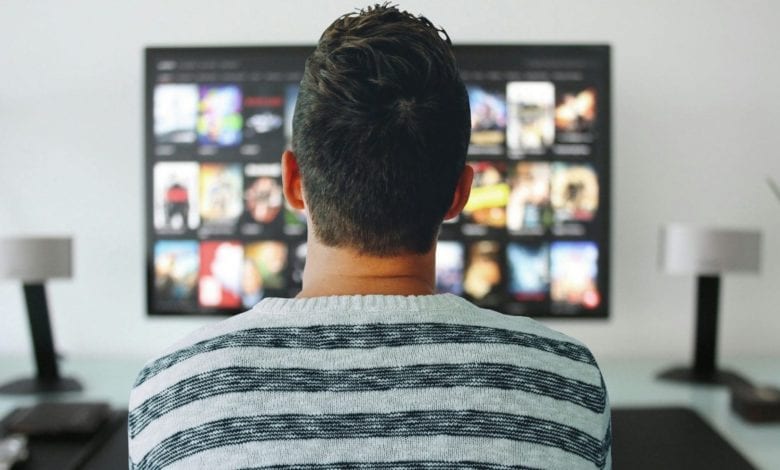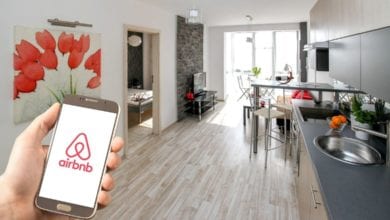Keeping up with in-room entertainment

A recent survey from hotel solutions provider HRS has found that the demand for innovative technology in hotels is on the rise. The research found that 44% of hotel guests from the UK would like the use of a tablet PC in their room, 23% want a laptop, and 42% would rather operate their room’s lighting, air conditioning and television via a touch-screen display instead of using a separate remote or switch.
The survey only touches on the real luxury items: technologies that have become, or are becoming, so ingrained into the fabric of our daily lives are now expected from the typical hotel package. As a hotelier, having the right in-room entertainment can open up new markets, encourage guests to stay at your hotel more often, and more importantly offer something above and beyond your local competitors.
Murray Ward, GM of The Rutland Hotel, Edinburgh believes that guests’ expectations are becoming more advanced. “We have become an incredibly technology-reliant society,” he says, “and the effect on hotels has been huge. Customers expect the same level of entertainment within their hotel room as they can find in the city they have booked to visit.”
Wi-Fi
One of the most important in-room technologies that hotels can offer is arguably decent Wi-Fi. Most people are ‘always connected’, whether it is sending a business email or keeping up-to-date with your friends on social media. The internet is near-impossible to shy away from.
Despite this, recent research from computer networking equipment manufacturer Netgear, found that many smaller hotels “do not understand the importance” of having a decent Wi-Fi connection available to guests. The survey looked at attitudes from both hoteliers and guests, and discovered that 76% of hospitality venues are convinced that their quality of service and traditional facilities are more important to customers than Wi-Fi. Some 43% believe customers regard poor or non-existent wireless access is a ‘price worth paying’ for the broader experience on offer.
This was in stark contrast with guests, of whom a third (33%) of leisure travellers and two thirds (67%) of business travellers said they would not return to a hotel that offered inadequate wireless access.
Olivia Byrne, company director of Eccleston Square Hotel, dubbed ‘London’s hi-tech hotel’, says: “I would say Wi-Fi is now a demand, it has to be good quality. If there is poor connection and if clients are unable to connect more than one device they get upset.”
TV
Unsurprisingly television is still the most popular gadget in the hotel room. But viewing habits are changing thanks to catch-up TV services, film and box-set streaming and even the amount of time spent on YouTube instead of traditional television channels. Netflix, BBC iPlayer, even the use of Facebook and emails, all through the HDTV screen – these things are becoming de rigeur in the home and as such guests increasingly feel something is missing if they cannot find these technologies in the hotel room.
The notion is borne out in data: a recent study for Sky Business (conducted by independent research company TNS), surveyed 1000 consumers and 100 hotel owners across the UK, and found that 65% of guests think a bespoke in-room TV service, with a full range of channels should be offered, and the figure rose to 75% for business travellers and 18-34 year-olds.
The research also revealed that this younger demographic regard in-room entertainment as a more important factor when booking a hotel room than breakfast, a restaurant, a gym and even the location. This generation is the market of tomorrow, so its views are worth heeding ahead of time.
Alison Dolan, deputy MD at Sky Business, says: “Guests’ expectations of in-room entertainment have changed a lot in recent years, largely driven by significant improvements in their own home entertainment systems. Large HD screens at home, the growing prevalence of subscription TV channels in multiple rooms, increasing amount of viewing from a planner rather than live, have all meant that consumers in the UK are accustomed to a high standard of entertainment. This, coupled with constraints on budgets, has meant that individuals and families are becoming less and less willing to pay for on-demand, or pay-per-view, television services in hotel rooms.”
So, what about the real luxury items?
If your target audience is the modern businessman who will more than likely be working during their visit, then cramming your hotel with the latest technology such as iPads and quirky gadgets will be a welcome touch. But on the other hand if your target audience is leisure travellers who are looking to get away for a day or two, then finding the right mix between state-of-the-art in-room entertainment technologies and more fad-driven gizmos, is essential planning.
Byrne says: “Listen to your guests. Also inform yourself of the new trends. Some technologies are a bit ‘gadgety’, it’s important to find technology that is useful and enhances a guest’s stay, avoiding short term gimmicks.
“I think people are still looking for the intimate service and face to face contact between staff and guests, which is still really important. I think the technology brings an extra sense of comfort and maybe things that people would aspire to have at home.”
Ultimately, having good in-room entertainment is no substitute for good overall service, but tastes are changing, and catering for the tastes an expectations of the upcoming generation is a powerful lever for the independent hotelier to pull, building a reputation for being ‘with the times’ instead of looking outdated and under-equipped.









